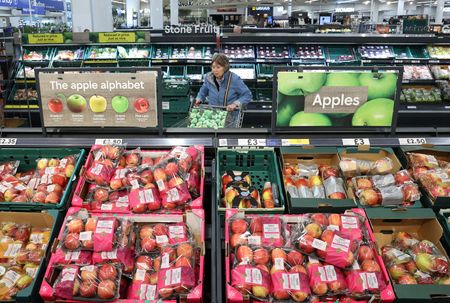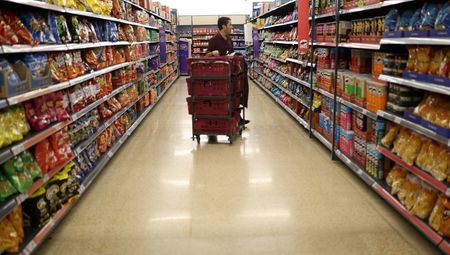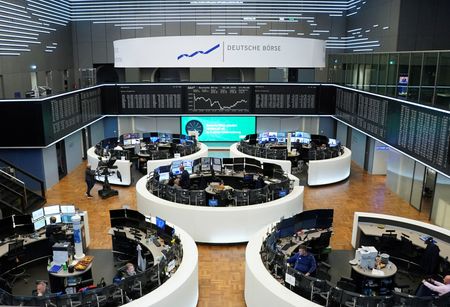By James Davey
LONDON (Reuters) – British grocery price inflation jumped to 4.1% for the four weeks to May 18, its highest level since February last year, adding to pressure on consumers already facing higher household bills, data from market researcher Kantar showed on Wednesday.
The figure compared to grocery inflation of 3.8% in last month’s report and reflects the cost of supermarkets’ higher payroll taxes and an increase in the national minimum wage, which came into effect in April.
Industry researcher the Institute of Grocery Distribution has forecast that food inflation could hit nearly 5% this year.
Grocery sales over the four weeks, meanwhile, rose 4.4% year-on-year.
“Households have been adapting their buying habits to manage budgets for some time, but we typically see changes in behaviour once inflation tips beyond the 3% to 4% point as people notice the impact on their wallets more,” said Fraser McKevitt, head of retail and consumer insight at Kantar.
Kantar said prices were rising fastest in chocolate confectionery, suncare and butters and spreads and were falling fastest in pet food and household paper products.
Market leader Tesco continued its strong sales run with growth of 5.9% year-on-year over the 12 weeks to May 18. Number two player Sainsbury’s sales were up 4.7%, Kantar’s data showed.
Number three Asda remained the industry laggard with sales down 3.2% and a 90 basis points loss of market share over the year. However, its performance was its best since May last year.
Discounters Aldi and Lidl achieved their strongest combined growth since January 2024 at 8.4%, while online supermarket Ocado marked a full year as Britain’s fastest growing grocer, with sales up 14.9%.
Despite enduring a cyberattack, Marks & Spencer’s sales rose by 12.3%, Kantar said.
UK supermarkets’ market share and sales growth (%)
Market share Market % change in
12 wks to 18 share 12 sales
May 2025 wks to May (yr-on-yr)
19 2024
Tesco
28.0 27.6 5.9
Sainsbury’s
15.1 15.1 4.7
Asda
12.1 13.0 -3.2
Aldi
11.1 10.8 6.7
Morrisons
8.4 8.6 1.1
Lidl
8.1 7.6 10.9
Co-operative
5.3 5.4 0.6
Waitrose
4.6 4.6 4.0
Iceland
2.2 2.3 1.9
Ocado
1.9 1.7 14.9
Source: Kantar
(Reporting by James Davey; Editing by Paul Sandle and Joe Bavier)












